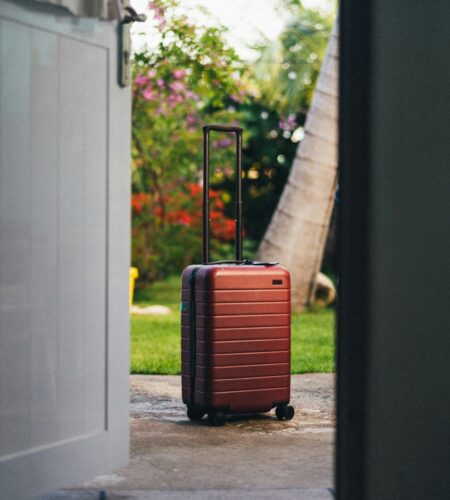Moving abroad comes with countless decisions, but perhaps none more liberating than choosing what to leave behind.
While most expats worry about shipping containers and storage units, a growing number are discovering that embracing a minimalist lifestyle transforms their international experience from overwhelming to extraordinary.
The freedom that comes with owning fewer possessions extends far beyond lighter luggage.
When you’re not weighed down by material attachments, you become more adaptable, financially flexible, and surprisingly, more connected to the cultures you encounter. This shift toward simple living isn’t just practical for expat life—it’s revolutionary.
Let’s explore how minimalism can enhance your journey abroad, from the initial move to building meaningful connections in your new home country.
Why Minimalism Makes Perfect Sense for Expats
The Financial Freedom Factor
Shipping household items internationally costs thousands of dollars, and those expenses multiply with each move. Insurance, storage, customs fees, and potential damage create an ongoing financial drain that many expats underestimate.
By choosing minimalism before your move, you eliminate these recurring costs. The money saved on shipping and storage can instead fund experiences, language classes, or emergency funds for unexpected opportunities.
Many expats find that the cost of shipping their belongings exceeds the replacement value, making minimalism not just philosophically appealing but economically logical.
Flexibility in an Uncertain World
Expat life rarely follows predictable patterns. Job contracts end unexpectedly, visa requirements change, and personal circumstances shift. When you’re committed to fewer possessions, these transitions become opportunities rather than logistical nightmares.
A minimalist approach means you can relocate within weeks instead of months, pursue spontaneous opportunities, and adapt to changing circumstances without being anchored by accumulated belongings.
This flexibility proves invaluable when navigating the unpredictable nature of international living.
Practical Steps for Embracing Simple Living Abroad
The Art of Strategic Packing
Moving abroad with minimal possessions requires thoughtful curation rather than random elimination. Start by categorizing your belongings into three groups: essentials, sentimental items, and everything else.
Essential items include important documents, a few versatile clothing pieces suitable for your destination’s climate, and any specialty items difficult to replace abroad.
Sentimental items should be limited to a small box of truly irreplaceable memories—photographs, letters, or small heirlooms that connect you to home.
Everything else becomes a candidate for selling, donating, or gifting to friends and family. This process often reveals how little we need and use in our daily lives.
Building Your New Life Piece by Piece
Once you arrive in your new country, resist the urge to immediately recreate your previous living situation. Instead, live with the basics for your first few months while you understand your new environment, lifestyle, and actual needs.
Purchase items gradually and intentionally. You’ll often discover that local alternatives work better than imported goods, and your preferences may shift as you adapt to new cultural norms and living spaces. This measured approach prevents accumulating items that don’t suit your new life.
The Digital Minimalist Advantage
Technology offers expats unique opportunities to minimize physical possessions while maximizing functionality. Digital books, streaming services, cloud storage, and online banking reduce the need for physical media, entertainment systems, and paperwork.
However, avoid simply transferring clutter from physical to digital spaces. Apply the same intentional curation to your digital life, keeping only applications, files, and subscriptions that actively enhance your expat experience.
Creating Meaningful Connections Through Shared Experiences
Community Over Possessions
One of minimalism’s greatest gifts to expats is the shift from acquiring things to building relationships. When you’re not focused on furnishing a perfect home or accumulating local goods, you have more time and mental space to invest in meaningful connections.
Join local clubs, volunteer for community organizations, or participate in cultural events. These activities create lasting memories and relationships that enrich your expat experience far more than any purchased item could.
The Gift of Presence
Without the distraction of managing and maintaining numerous possessions, you become more present in your daily experiences. You notice architectural details during walks, engage more deeply in conversations, and remain open to spontaneous adventures.
This heightened awareness enhances language learning, cultural understanding, and personal growth.
Many minimalist expats report feeling more connected to their new environment because they’re not buffered by familiar belongings that might keep them psychologically distant from their new culture.
Overcoming Common Minimalist Challenges as an Expat
Dealing with Social Expectations
Different cultures have varying relationships with possessions and hospitality. Some societies express care through gift-giving or expect certain material displays of success.
Understanding these cultural nuances helps you navigate social expectations while maintaining your minimalist values.
Communicate your lifestyle choice positively, focusing on the freedom and experiences it enables rather than positioning it as a rejection of local customs. Often, people admire the intentionality behind minimalism once they understand its purpose.
Managing Seasonal and Climate Adjustments
Expat life often involves dramatic climate changes that challenge minimalist wardrobes. Research your destination’s seasonal patterns and invest in versatile, high-quality pieces that work across temperature ranges.
Layering systems work better than specialized clothing for each season. A good base layer, insulating mid-layer, and weather-resistant outer layer can handle most climate variations while occupying minimal space.
Balancing Minimalism with Practicality
Some situations genuinely require specific tools or equipment. The key is distinguishing between actual needs and perceived needs driven by fear or social pressure.
Consider borrowing, renting, or buying used items for temporary needs. Many expat communities have robust sharing networks where members loan equipment, tools, or specialty items to each other.
The Long-Term Benefits of Minimalist Expat Living
Enhanced Mobility for Future Adventures
Once you’ve successfully established a minimalist lifestyle in one country, relocating to additional destinations becomes remarkably straightforward.
You develop systems for quickly assessing new environments, identifying essential purchases, and building community connections.
This enhanced mobility opens doors to opportunities that heavily-laden expats might miss—short-term assignments, spontaneous relocations, or extended travel within your host region.
Deeper Cultural Integration
Without the psychological barrier of imported possessions, you’re more likely to adopt local customs, cooking methods, and lifestyle practices.
This deeper integration enhances your cultural experience and often leads to stronger relationships with local community members.
You become more adaptable and less dependent on familiar items to feel comfortable, which builds confidence and resilience that serve you throughout your expat journey and beyond.
Building Your Personal Minimalist Framework
The most successful minimalist expats don’t follow rigid rules but develop personal frameworks that align with their values and circumstances.
Some focus on experiences over possessions, others prioritize flexibility and mobility, and many emphasize environmental responsibility.
Your minimalist lifestyle should enhance rather than restrict your expat experience. Regular evaluation helps ensure your approach continues serving your evolving needs and goals. Consider how minimalism intersects with your reasons for living abroad.
Are you seeking adventure, career advancement, or personal growth? Your minimalist practices should support these broader objectives while simplifying the practical aspects of international living.
Remember that minimalism isn’t about deprivation or rigid rules—it’s about intentionality and freedom. The goal is creating space for what matters most in your expat journey, whether that’s cultural immersion, professional development, or personal transformation.
By embracing simple living principles, you’re not just reducing your possessions—you’re expanding your possibilities.
The lightness that comes with fewer things creates room for richer experiences, deeper relationships, and greater personal growth than any amount of accumulated belongings could provide.
Subscribe to our email newsletter to get the latest posts delivered right to your email.

